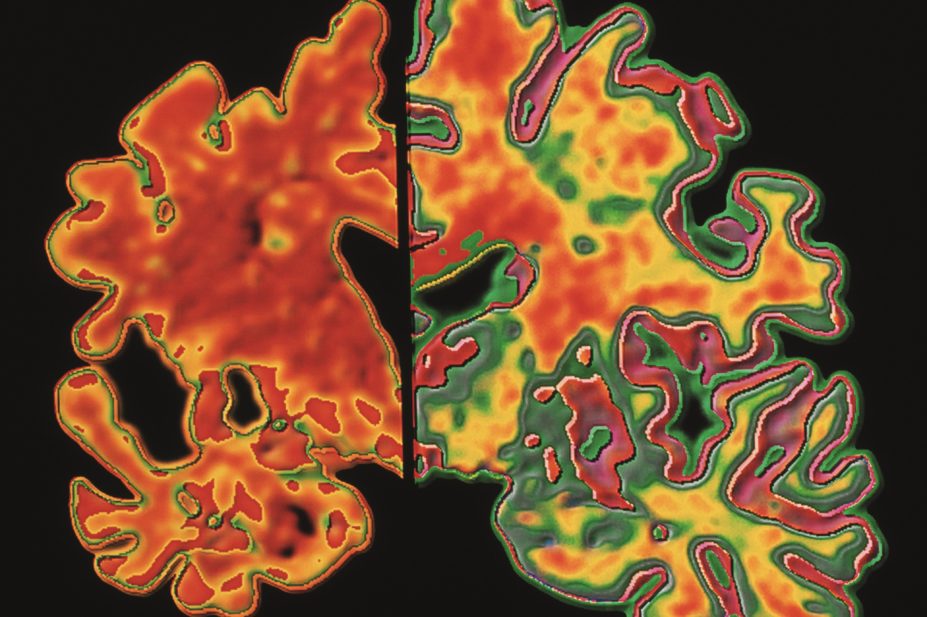
Alfred Pasieka / Science Photo Library
A monoclonal antibody in development for the treatment of Alzheimer’s disease (AD) may have disease-modifying properties, according to research presented at the Alzheimer’s Association International Conference in Washington, DC, on 22 July 2015.
The results, published online in Alzheimer’s & Dementia: Translational Research & Clinical Interventions
[1]
, come from a long-term follow-up study, known as EXPEDITION-EXT, involving 975 patients with mild AD who had previously participated in one of two phase III placebo-controlled studies of solanezumab (EXPEDITION and EXPEDITION2). Solanezumab binds to soluble monomeric forms of amyloid beta, allowing the protein to be cleared before it clumps together to form beta-amyloid plaques.
The researchers used a new methodology known as “delayed start” — comprising a placebo-controlled period followed by a period during which all patients receive active treatment. If the treatment’s effects are limited to reducing disease symptoms, both groups experience the same benefit, with the delayed start group catching up with the group who received treatment early.
However, the researchers observed that differences in cognition and daily function at the end of the placebo-controlled studies were preserved after 28 weeks for the early start and delayed start groups, and the differences remained significant until 80 weeks.
The results are consistent with a potential disease-modifying effect of solanezumab on underlying progression of AD, say the researchers. “Benefits observed during the placebo-controlled period could not be recovered by the later introduction of solanezumab,” write Hong Liu-Seifert and co-authors in the abstract accompanying the presentation, who conclude that the finding supports initiation of treatment as early as possible.
There is no universally accepted definition of a clinically meaningful effect of a disease-modifying treatment in the field of AD. However, the observed 1.8-point treatment difference in cognition observed in pooled analysis of EXPEDITION and EXPEDITION2 at 80 weeks represents a 34% reduction in cognitive decline, the authors note.
Solanezumab was well tolerated, with no differences in rates of death, serious adverse events or discontinuations because of adverse events between the treatment groups.
Terri Turner, locality lead pharmacist at Avon and Wiltshire Mental Health Partnership NHS Trust, says the study is interesting and “another piece of the jigsaw” relating to AD.
“Early detection of AD and treatment sooner than we have provided in the past will help slow the progression of this terrible condition, although this treatment does not produce a cure,” she says. “The numbers in the study were small and this may give us a target for further research. More data is expected from a sister study in October 2016 that may shed more light on the underlying pathology and symptom emergence.”
Also commenting on the study, Doug Brown, director of research and development at the Alzheimer’s Society, says: “It’s good news that some people have been receiving the antibody for over three years and it appears to be having beneficial effects. The current trial has finished recruiting participants, so in just 18 months we may get an exciting first look at the final results.”


